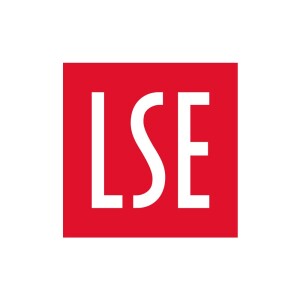![Propaganda and Democratic Resistance Propaganda and Democratic Resistance [Audio]](https://i1.sndcdn.com/artworks-000699425332-01oimm-t3000x3000.jpg)
Propaganda and Democratic Resistance Propaganda and Democratic Resistance [Audio]
 2020-03-04
2020-03-04
Download
Right click and do "save link as"
Speaker(s): Dr Shakuntala Banaji, Darren Moon, Peter Pomerantsev | Propaganda seems like a very 20th century issue. But it is back on the agenda due to the scandals provoked by social media’s manipulation of voters in the Brexit referendum and the Trump election. This round table brings together experts on propaganda and the Internet to explore the populist problem presented by “fake news” – and how we can resist it. It explores examples from India, Russia, and China: Banaji on WhatsApp misinformation in India, Pomerantsev on Russian misinformation campaigns, Callahan on China’s political influence campaigns, and Moon and an International Relations LSE student on their short video made for the “Visual International Politics: IR318” course. The goal is to think about how we need to develop the critical visual literacy skills that allow us to “reshape the world” in more inclusive and democratic ways. Shakuntala Banaji is associate professor of media and communications at the LSE. Her recent publications include the LSE report WhatsApp Vigilantes: An exploration of citizen reception and circulation of WhatsApp misinformation linked to mob violence in India. Darren Moon is Senior Learning Technologist in the LSE Eden Centre for Education Enhancement. He works closely with academic colleagues to develop the use of audio-visual media for teaching and learning. and has a particular interest in visual culture, methods and pedagogies. William A. Callahan is Professor of International Relations at LSE. His most recent book is Sensible Politics: Visualizing International Relations. Peter Pomerantsev is a senior fellow in the Institute for Global Affairs at the LSE. He is author of This is Not Propaganda: Adventures in the War Against Reality. Twitter hashtags for this event: #LSEFestival #ShapetheWorld
view more
More Episodes
Relationships - marriage and monogamy
 2021-04-30
2021-04-30
 2021-04-30
2021-04-30
Security versus liberty
 2021-04-30
2021-04-30
 2021-04-30
2021-04-30
Not Suitable for Work
 2021-03-15
2021-03-15
 2021-03-15
2021-03-15
Health Policy in a Post-COVID World
 2021-03-09
2021-03-09
 2021-03-09
2021-03-09
How the Pandemic Polarised Us
 2021-03-09
2021-03-09
 2021-03-09
2021-03-09
Digital by Default: the COVID-19 generation
 2021-03-05
2021-03-05
 2021-03-05
2021-03-05
What is Colonial about Global Health?
 2021-03-04
2021-03-04
 2021-03-04
2021-03-04
COVID-19 in the UK: where are all the women?
 2021-03-04
2021-03-04
 2021-03-04
2021-03-04
012345678910111213141516171819
Create your
podcast in
minutes
- Full-featured podcast site
- Unlimited storage and bandwidth
- Comprehensive podcast stats
- Distribute to Apple Podcasts, Spotify, and more
- Make money with your podcast
It is Free
- Privacy Policy
- Cookie Policy
- Terms of Use
- Consent Preferences
- Copyright © 2015-2024 Podbean.com





